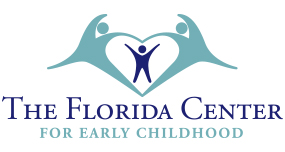What Mental Health Professionals Need to Know About FASD
By Tamra Cajo, Director of The Florida Center’s FASD Diagnostic Clinic
I have been in the mental health field for almost 20 years, working with families in a variety of capacities, from more intensive crisis management to services at home and in schools. Through the years, I thought I had a pretty good understanding of trauma and helping both children and families. But, boy was I wrong! I had a major “Aha” moment two years ago, when I accepted my current position as the Director of The Florida Center’s Fetal Alcohol Spectrum Disorder (FASD) Clinic. I realized then and there that a piece of the puzzle was missing and that FASD can often be an underlying reason for many mental health issues in children and adults.
FASD is a spectrum disorder more prevalent than Autism. The Center for Disease Control estimates that one in 20 people in the U.S. have FASD, but are either misdiagnosed, or undiagnosed. They spend their whole lives never really understanding why they act and feel the way they do. Had I known then what I know now about the disorder, I would have asked the following questions for each case I worked so I could better serve my clients.
![]()
I would have placed more emphasis around in utero exposure to alcohol & drugs.
When I was a younger clinician, the fact that a child was substance exposed was not what guided me in treatment – it should have been. The first trauma a child experiences can actually occur before they are born. Exposure to alcohol and drugs can set a foundation for many challenges the child may experience later in life. It’s important to collect this information when working with any client as it may give clues to some of the deeper issues the client is dealing with.
I would have phrased the question, “Did you drink while you were pregnant?” much differently.
Nearly half (45%) of all pregnancies in the U.S. are unintended, that number increases to 75% for women younger than 20, according to information provided by Proof Alliance. It’s feasible to assume many of these women consumed alcohol before realizing they were pregnant. Alcohol consummation, even during very early stages of pregnancy, can cause FASD. But, there is a lot of shame, guilt, and stigma around drinking while pregnant. It’s hard for a mother to be completely honest if she feels judged. Framing the question as “How much did you drink before you found out you were pregnant?” normalizes the fact that many woman have consumed alcohol before realizing they were pregnant and eliminates any judgement.
No confirmation of alcohol use does NOT mean a child doesn’t have FASD.
In many cases, a child’s exposure to alcohol is unknown, especially if they are adopted. This doesn’t mean they don’t have FASD – it just means we might have to dig a little deeper for the information.
I would have relied on the assessments of other professionals.
Mental health, trauma and attachment are all important pillars for treatment, but it is just a part of the puzzle. Gathering additional information from neuropsychologists, occupational therapists, speech language pathologists, school staff and doctors helps therapists have a more holistic view of the challenges a child may face.
I would have asked more about the parents’ brain-based challenges.
FASD can be a multi-generational problem. If the biological mother acknowledged that she drank alcohol during pregnancy, it is possible that her mother also drank during pregnancy. Having more open discussions with parents about their brain-based challenges and family history helps me better assess the situation and meet their needs in treatment.
I would have better identified FASD red flags.
I now have an alarm system in place when I hear a child has been ‘Baker Acted several times,’ or that ‘nothing seems to work’ when it comes to treatment strategies so ‘providers are pretty much giving up.’ What my internal siren is telling me is something else is going on! Not reacting to these instincts can be detrimental to children and parents living with FASD who will continue to be labeled as ‘uncaring,’ ‘manipulative’ or ‘problematic,” if they are not correctly diagnosed. Derogatory labels can actually cause more trauma for the client and impede the treatment process.
If someone had advised me about FASD those many years ago, I think I could have helped more clients reach their full potential. I hope this blog will educate mental health professionals and spread awareness about FASD, the invisible disorder that affects the lives of millions.


